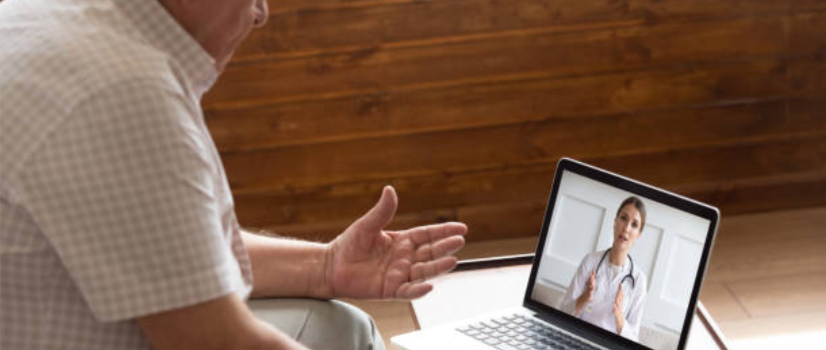Medicare Expands Tele-Medicine Help Due To COVID-19

Medicare recently announced the expansion of its telemedicine program to benefit seniors while they stay at home during the Coronavirus pandemic.
This expansion will allow millions of senior Medicare participants to adhere to the public health advisory to stay home during the coronavirus pandemic, and still, be able to connect with their doctors virtually to obtain care for their medical issues or new concerns they may have.
In this way, a diabetic patient instead of making a follow-up doctor’s visit in person will be able to safely connect with his doctor via Skype. If a patient suspects he may have the coronavirus he may consult with his doctor or nurse practitioner virtually and get advice on testing in person.
Seema Verma, a Medicare administrator, stated that this system will help contain the spread of the virus. If seniors are not comfortable with using the technology of telemedicine, they may enlist the help of a friend or family member.
The friend or family member meets with the patient at his home and uses a cell phone for the virtual appointment with the patient’s doctor. It is important that the person assisting is not sick himself.
Senior citizens and individuals with underlying health conditions such as heart disease, diabetes, lung conditions, and other problems are especially at risk for catching the coronavirus.
The telemedicine expansion is specifically geared towards this group of individuals to assist them in managing their chronic health issues during the coronavirus pandemic.
Prior to the telemedicine expansion, the telehealth coverage under Medicare was available to rural patients who went to special sites for their visits. That system provided coverage for virtual “check-ins”, but the telemedicine system is an expanded version of telehealth and allows medical practitioners and hospitals to bill Medicare for the telemedicine sessions which previously took place in person at a facility or medical office.
Congress approved the system change which is apart of the Trump administration’s emergency declaration and will remain in effect during the coronavirus outbreak. Verma urged the Centers for Medicine and Medicaid Services to expand their telehealth within their Medicaid programs to assist lower-income individuals.
Medicare Advantage plans offered by private insurance companies have traditionally included such systems in their medical packages for a number of years, for example, telemedicine supplemental benefits such as gym memberships, and dental coverage. About 20 million of all 60 million Medicare recipients are enrolled in these supplemental plans.
Individuals 65 years and over as well as individuals who qualify for disability are covered by Medicare insurance which is the health insurance program of the government. About 40 million people in the traditional Medicare program administered by the government are the individuals whose medical needs are addressed by the telemedicine expansion.
This expansion includes the following:
• Professional medical practitioners and patients might use a two-way voice and visual connection that supports real-time interaction. Devices such as laptops, smartphones, and tablets will work for this type of connection.
• Hospitals and medical professionals such as nurse practitioners, doctors, nutrition professionals, licensed social workers, and clinical psychologists, are all qualified to offer telehealth. Nursing home residents are also eligible to consult with the doctors using the telehealth system.
• Telemedicine visits will incur the same deductibles and co-pays of standard Medicare. Healthcare providers would typically charge the established co-pays for telehealth visits, but during the coronavirus outbreak, these providers may waive the copays or charge a reduced cost.
• Previously, medical offices were required to have an already established relationship with the patient in order to bill for telehealth services. Medicare has since refrained from enforcing this requirement during the coronavirus public health outbreak.
Verma explained this will allow for a situation where a medical practice has been forced to close its offices as a result of the outbreak.
The use of telehealth services has grown slowly over recent years. Large and midsize employers offer this service for healthcare professionals and patients to connect virtually. However, researches have stated that patients’ use has been low especially if they are already well accustomed to inpatient visits with their medical professionals.
In a study done by a benefits consultant, Mercer, it was found that 88% of companies with more than 500 employees were offered telemedicine in their health benefits package. However, only 9% of eligible employees utilize this system.
If the use of telemedicine proves to be successful during the coronavirus emergency it could be made permanently and more widely available to Medicare seniors.
